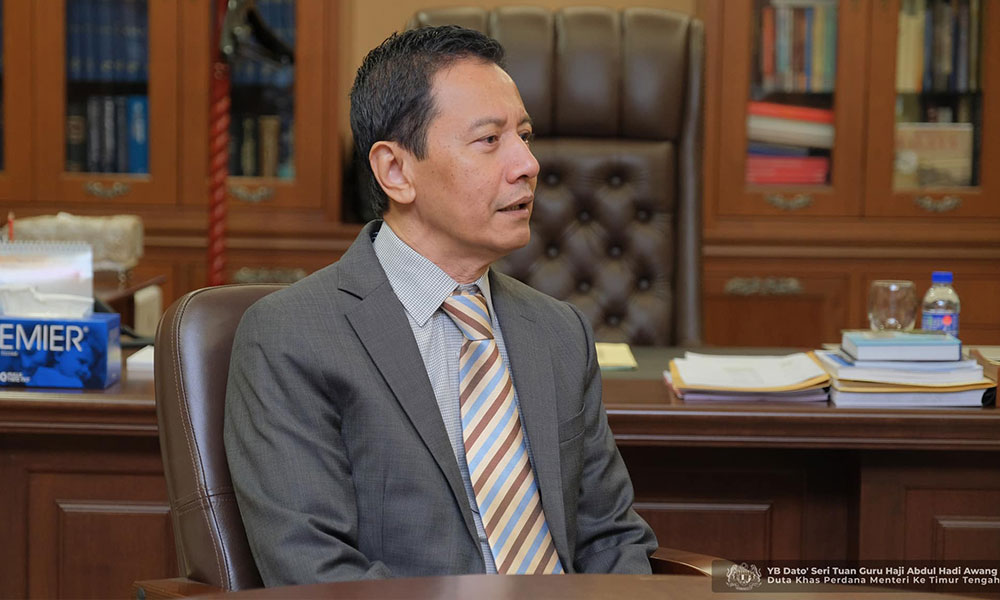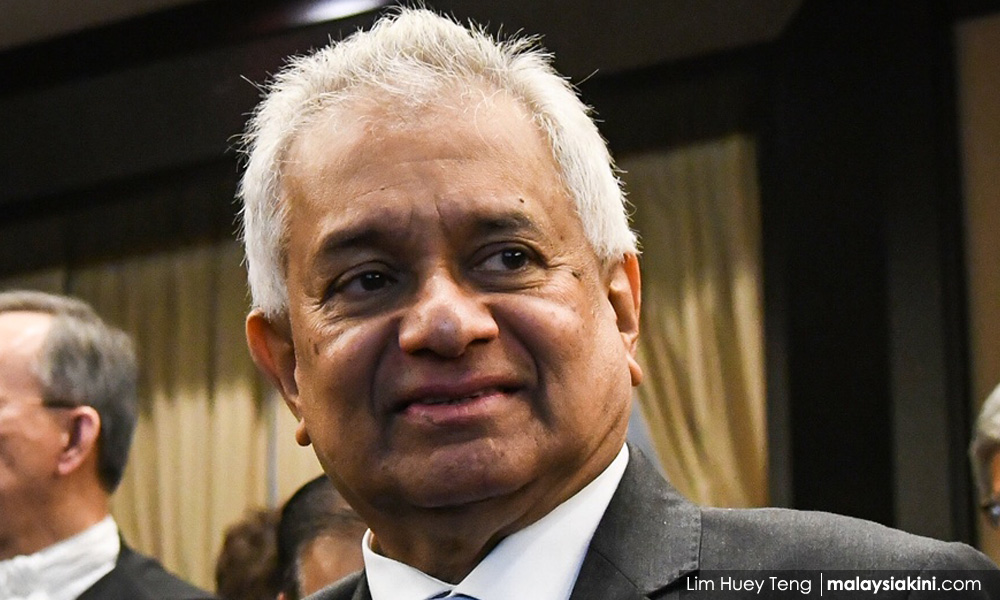Ex-AG: Harapan's dithering and pandering led to poor law reforms
Former attorney-general Tommy Thomas described the Pakatan Harapan government's performance in law reform as "poor" and lamented the coalition's dithering and pandering to public opinion.
An example he cited was the proposed abolition of the death penalty, which Thomas said his office already had ready for debate during the parliamentary session of October 2018.
"The cabinet, after discussing the amendment bill, deferred it. The message to us was that abolition was not acceptable because of vigorous objections.
"The Attorney-General's Chambers was asked to do another version without going so far as to advocate the complete abolition of the death penalty. But no alternative policy was given to us.
"The appeasement of the cabinet was disappointing. The Chinese media was opposed to removing the death penalty because many in the Chinese community wanted capital punishment to remain on the books.
"That in turn caused some MPs to have second thoughts," Thomas said in his memoir My Story: Justice in the Wilderness.
He added that the security forces and agencies in the Home Ministry also objected for obvious reasons, while PAS injected religious values into a matter of law.
In contrast, Thomas said he was surprised that the Prisons Board did not object to the abolition of the death penalty.
"A high-powered delegation from the Prisons Board visited me in chambers. We had a frank and free-ranging discussion on numerous matters of mutual interest.
"More significantly, the Prisons Department officials had no objection to my proposal that the death penalty be abolished.
"They agreed that certainly for drug trafficking offences, Malaysia’s experience was that compulsory death sentence did not serve as a deterrent.
"More holistic approaches ought to be considered to tackle the massive drug problem afflicting hundreds of thousands of Malaysians. All in all, I found their thinking progressive," he said.
Thomas said the meeting with the Prisons Department was "one of the most fruitful and productive discussions" he had while in public service.
He said he also learnt that a moratorium on the death penalty was already in place since Najib Abdul Razak's time as prime minister and was implemented in January 2018, although not publicised.
He added that in a meeting with then Home Minister Muhyiddin Yassin, he too was agreeable to the abolition of the death penalty but could not follow through as he was admitted to hospital for cancer treatment.
Thomas said he had tried to impress upon the government that the issue of the death penalty was where they had to show leadership.
"I informed some ministers that capital punishment was a classic example where legislators must lead public opinion," he said.
He pointed out that, for example, public opinion in the UK was overwhelmingly against the abolition of the death penalty in the 1960s, but its Parliament voted in favour of abolition.
"The people originally were against abolition but over time accepted its wisdom. Empirical studies establish that the death penalty does not serve as a deterrent," he said.
However, Thomas said, this was not to be the case with the Harapan government.
"What the Harapan cabinet did not appreciate at all or sufficiently, was that its U-turn on law-making would embolden the right-wing opposition.
"The failure to follow through with abolition in the second session of Parliament in its first year in office was a harbinger of future U-turns, and their poor performance in law reform. The opposition took note," he said.
While in office, Thomas said he had also worked on a bill to abolish ouster clauses - a provision in the law that disallows the courts from reviewing government decisions.
He said government decisions ought to be scrutinised by the court of law, in the interest of accountability.
Thomas said the Home Ministry expectedly objected but objection from the Treasury was unexpected.

However, Thomas said what shocked him most was that then Election Commission (EC) chief Azhar Azizan Harun - now the Dewan Rakyat speaker - also objected to the proposal.
"I was absolutely shocked when Art Harun defended the EC’s view, which he personally subscribed to, that the numerous ouster clauses in the EC laws were absolutely necessary.
"He was adamant in opposing court challenges against EC decisions under the EC laws.
"We argued for some time, but when I realised that Azhar would not shift, I terminated our telephone (conversation). I did not pursue the issue of ouster clauses. If I could not persuade Azhar to support access to court with regard to the EC’s decision, what hope would I have with the Home Ministry," he said.
Thomas resigned as attorney-general after the collapse of the Harapan government in March 2020. - Mkini
✍ Credit given to the original owner of this post : ☕ Malaysians Must Know the TRUTH
🌐 Hit This Link To Find Out More On Their Articles...🏄🏻♀️ Enjoy Surfing!





















Post a Comment